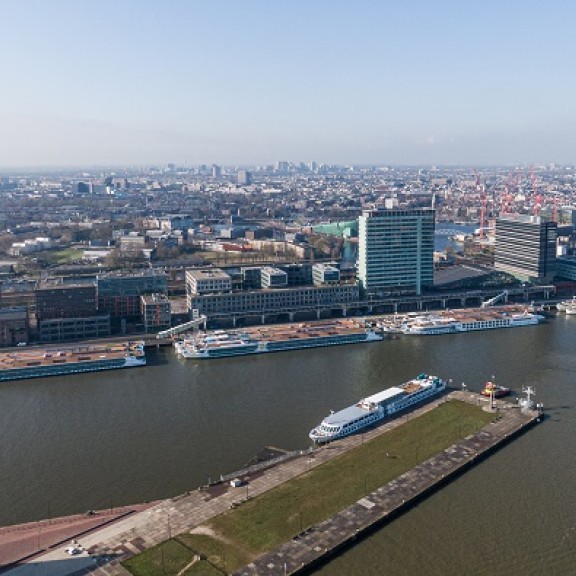
'Lay bys' wait for better times in the port of Amsterdam
Mid-March we decided, together with the Amsterdam-Amstelland Safety region, that river and sea cruise ships are no longer welcome in the port until further notice. The reason for keeping cruise ships out of the port is to minimize the risk of further contamination of the coronavirus.
The cruise season traditionally starts with the opening of the Keukenhof and therefore April and May are the busiest months for us.
Monic van der Heyden, Commercial Manager River Cruise at Port of Amsterdam: 'The minute we noticed that corona was spreading in Europe rapidly, we decided that it was not responsible to facilitate the cruise here. The cruise season traditionally begins with the opening of the Keukenhof (March 21st) and by the end of April alone we had 753 river cruise visits in our reservation systems. So there was no time to lose. It was a tough decision to make, but the right one. We just did not want to take the risk.'
But the coming days 13 river cruise ships will still arrive at the Passenger Terminal Amsterdam, what is the story behind that? Monic: 'River cruise ships do not have a fixed home port. Because the river cruise ships do not sail right now, they are looking for a safe place to be moored until the coronavirus is over. The ships that we are expecting have only a minimum of three crew members on board and no passengers.'
'We facilitate these ships because, on the one hand, it does not pose a threat to public health. We look at it on a case-by-case basis because it is also a core task of a port to provide a safe place to moor if a ship requests it. We do this more often, for example, during the winter several river cruise ships hold a 'winter stall' in the Coenhaven.'
'The Port Bye-laws stipulates that ships must have a minimum crew. A maximum of three people is, therefore, present onboard each ship: the captain, the engineer and a sailor. Also, the rules apply that it is not allowed to have passengers or other persons on board the ship. The Harbour Master supervises this as well. In the case of imposition, the ships use only a fraction of the energy required for full occupancy with guests. For example, one ship will also cook for the crew of the other ships. It is not yet possible to say how long they will stay in the port of Amsterdam, but we hope that this will be as short as possible because that would mean that the virus is under control and that would be fantastic news.'